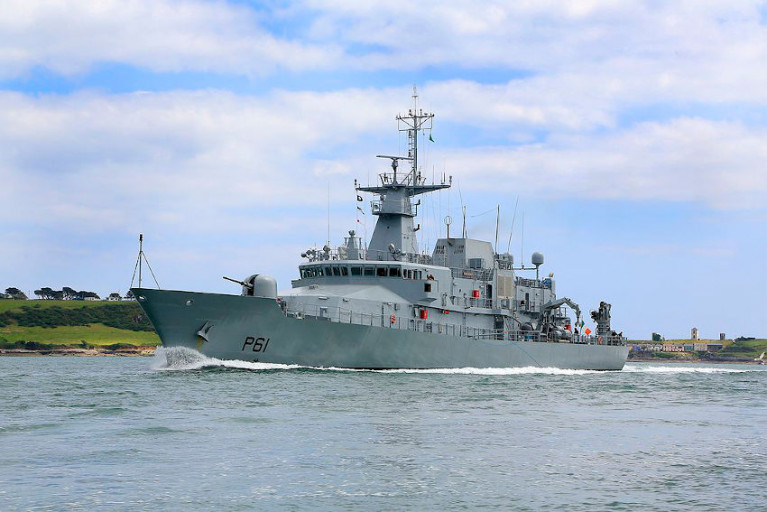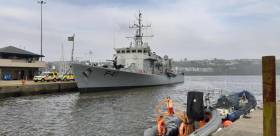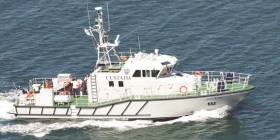Displaying items by tag: Drug Smuggling
Africa Needs Ireland’s & Europe’s Help to Tackle Transatlantic Drug Trade, Says Anti-Smuggling Chief
Ireland has a “vested interest” in joining fellow EU nations and shoring up support to combat the transatlantic drug trade in West Africa.
That’s the message from the head of the EU’s anti-smuggling agency MAOC, who has been outspoken about drug cartels’ use of ‘narco-subs’ to skirt under the gaze of traditional patrol efforts.
As previously reported on Afloat.ie, Michael O’Sullivan said the discovery of these semi-submersible vessels points to an even greater security threat to the world.
More recently, an article co-authored by O’Sullivan and Naval Service commander Cathal Power has been published in the 2020 Defence Forces Review which outlines the dangers involved, and the outsized burden placed on less wealthy African nations to deal with these threats.
As The Irish Times reports, it calls for Ireland to step up alongside other European nations and commit resources to bolster maritime policing efforts in Cape Verde — the West African islands at one end of the nightly trafficked shipping route known as Highway 10.
“Now is the time for Ireland to join our European partner nations in a more overt, forward presence in the southern part of the North Atlantic,” they write. “The removal of drugs upstream, in bulk, would have an immensely positive impact on European and Irish society.”
The Irish Times has more on the story HERE.
#coastalnotes - Communities along the coast reports Independent.ie have been warned that local intelligence is critical if Ireland is to win the battle against drug-smuggling gangs.
Gardaí, Customs and Excise, and the Naval Service urged people suspicious of any activities at sea or along isolated stretches of coastline to immediately contact the authorities.
The plea came as the Cork West Garda Division staged a 'Coastal Watch' seminar in Kinsale.
Fittingly, the seminar took place in west Cork, where some of Ireland's biggest drug seizures have been made, including the infamous €440m cocaine smuggling bid at Dunlough Bay in July 2007.
For more on the story click here.
Afloat adds also berthed in Kinsale was a Revenue Commissioners Customs cutter. In addition but not related to the seminar was a visiting €5m private motor superyacht Capella C which was converted from a pilot cutter vessel.
Drug Smuggling Investigation Sees Three Arrested & Yacht Impounded
#Crime - Three men are in custody and their yacht impounded in Cork on suspicion of drug trafficking.
As RTÉ News reports, the Naval Service detained the vessel, which had sailed from South America, off the Kerry coast yesterday (Wednesday 12 September).
The boat is currently undergoing forensic examination in Kinsale, though it is understood that no drugs had been found as of this afternoon.
This incident comes a fortnight after the Naval Service was involved in the detention of a catamaran with a “significant quantity of cocaine” in the English Channel.
































































